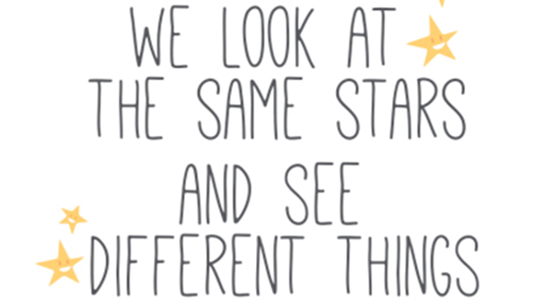All children have the right to be treated fairly without discrimination, regardless of their colour, sex, language, religion, nationality, ethnic or social origin, disability or other status.
Research shows that children notice differences in race, ability, family composition and a multitude of other factors from a very early age. They begin to ask questions in an attempt to make sense of these observations so they can make meaning of their world.
Helping all children understand differences encourages them to feel good about who they are, where they fit into the world and appreciate the diversity in others. It also helps to build strong inclusive communities where everyone enjoys a sense of being valued and belonging which support positive mental health.
Children are not developmentally equipped to refrain from sharing what they think or asking what they want to know. Some of these questions relating to race, culture and disabilities can be challenging. These questions should be answered honestly and respectfully as this teaches them that it is acceptable to notice and talk about differences.
Some tips to assist you in promoting positive cultural awareness and respect include:
- Language: teaching children words in languages represented within the service
- Books: helps children to understand identity and learn about differences including religion, race and ability
- Life Experiences: expose children to foods from different cultures and attend cultural events and celebrations within the community.
-
Role model: children become culturally sensitive and respectful when they see adults being culturally sensitive and respectful and you take stand against bias and racism.

It’s important as individuals to think about our own personal bias when teaching children about diversity and cultural awareness.
Think about:
- Your own view on the world
- Your attitude towards cultural differences
- Your knowledge of different cultural practices and world views
- Your skills with communicating with others from diverse backgrounds.
Educators work collaboratively with families to gain knowledge and an understanding of their aspirations for their children. Educators respect home life, cultures and traditions of all families within the service.
Together we can teach children to accept differences, respect others and teach them that we live in a world where everyone belongs.






